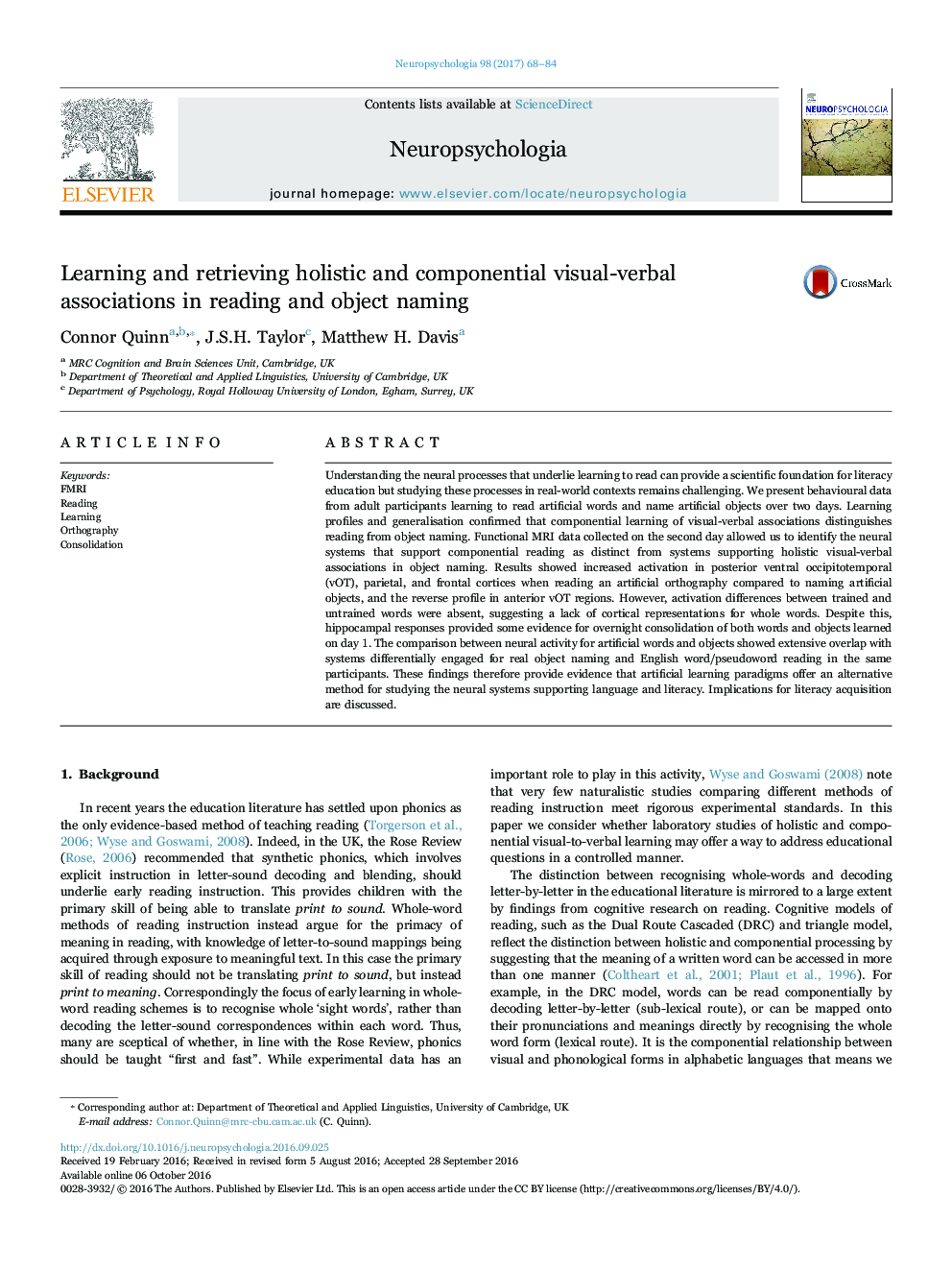| کد مقاله | کد نشریه | سال انتشار | مقاله انگلیسی | نسخه تمام متن |
|---|---|---|---|---|
| 5045272 | 1475557 | 2017 | 17 صفحه PDF | دانلود رایگان |
- Generalisation of novel orthography shows componential processing in reading.
- Real and artificial words and objects rely upon the same neural systems.
- Different neural systems support reading novel orthography and naming novel objects.
- No evidence of whole-word cortical representations for artificial written words.
- Reduced hippocampal responses suggest overnight consolidation of artificial items.
Understanding the neural processes that underlie learning to read can provide a scientific foundation for literacy education but studying these processes in real-world contexts remains challenging. We present behavioural data from adult participants learning to read artificial words and name artificial objects over two days. Learning profiles and generalisation confirmed that componential learning of visual-verbal associations distinguishes reading from object naming. Functional MRI data collected on the second day allowed us to identify the neural systems that support componential reading as distinct from systems supporting holistic visual-verbal associations in object naming. Results showed increased activation in posterior ventral occipitotemporal (vOT), parietal, and frontal cortices when reading an artificial orthography compared to naming artificial objects, and the reverse profile in anterior vOT regions. However, activation differences between trained and untrained words were absent, suggesting a lack of cortical representations for whole words. Despite this, hippocampal responses provided some evidence for overnight consolidation of both words and objects learned on day 1. The comparison between neural activity for artificial words and objects showed extensive overlap with systems differentially engaged for real object naming and English word/pseudoword reading in the same participants. These findings therefore provide evidence that artificial learning paradigms offer an alternative method for studying the neural systems supporting language and literacy. Implications for literacy acquisition are discussed.
Journal: Neuropsychologia - Volume 98, April 2017, Pages 68-84
